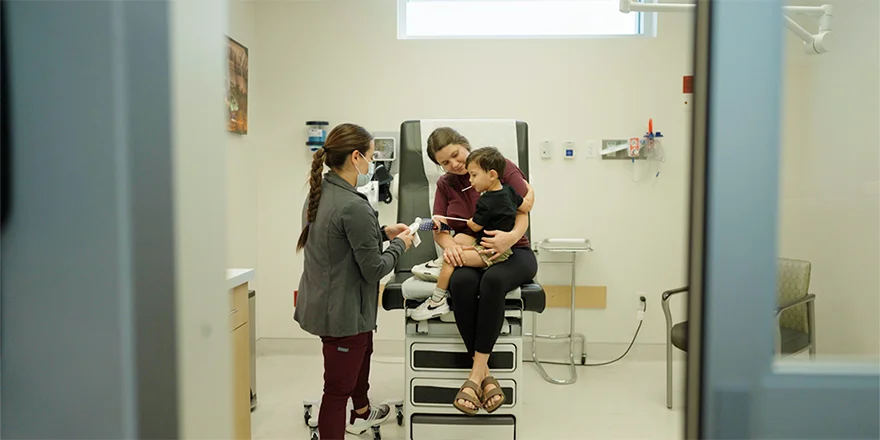Have you recently felt anxious, stressed, or extremely overwhelmed? Let’s be honest…who hasn’t felt this way due to the everyday stress of life? As beautiful as life can be, sometimes it feels really hard, chaotic and overwhelming.
Generalized anxiety disorder is a condition that involves persistent and excessive worry that interferes with daily activities. If the worries and anxiety you face are long-lasting and prevent you from living life the way you would like to, you might have generalized anxiety disorder (GAD) or another anxiety disorder.
Luckily, there is help, much information and proven treatment for anxiety.
Symptoms of Generalized Anxiety Disorder
If you are wondering, “do I have generalized anxiety disorder or just occasional anxious thoughts?” it can be helpful to understand the symptoms of generalized anxiety disorder (GAD).
According to diagnostic criteria in the Diagnostic and Statistical Manual of Mental Disorders, an individual might be diagnosed with generalized anxiety disorder by a mental health professional when:
- Excessive worry occurs more days than not for at least six months
- It is difficult to control the worry
- Worry and anxiety are associated with three or more of the following (only one item is required in children):
- Restlessness
- Being easily fatigued
- Difficulty concentrating or mind going blank
- Irritability
- Muscle tension
- Sleep disturbance
- Anxiety, worry, or physical symptoms cause clinically significant stress or impairment in social, occupational, or other important areas of functioning
In short, if you experience a combination of these, you show symptoms of generalized anxiety disorder. It is a good and healthy thing for you to consider professional help!
When to Seek Treatment for Anxiety
Experiencing significant anxiety can leave you feeling alone, hopeless, and stuck. The good news is anxiety can get better over time by taking time for self-care and doing the “heart” work.
We sometimes wonder what makes our feelings problematic or when we should speak with a professional. It’s easy to hear an intimidating term like “generalized anxiety disorder” and discount the feelings of anxiety or worry because they don’t seem that serious.
But, generally speaking, if your thoughts and feelings prevent you from performing daily activities at home, work, or school, it’s time to reach out to a mental health professional.
Xpress Wellness Behavioral Health provides behavioral health counseling for people in Oklahoma. We help patients manage and treat their anxiety in telehealth and in-person therapy sessions.
How Counseling Helps Anxiety
A mental health professional can complete an assessment to determine whether you meet specific criteria for generalized anxiety (or other more specialized anxiety disorders) and help you understand the diagnosis.
There are two primary ways therapy can help anxiety:
- Education: Education is a component of a mental health professional’s role in helping increase your chance of successfully reducing symptoms of anxiety. Don’t hesitate to write down your questions to discuss in counseling sessions; knowledge is power!
- Interventions: Some interventions can decrease symptoms of anxiety and can be tailored to an individual’s needs and lifestyle. The long-term goal is to implement coping mechanisms for stress and worry. It’s impossible to go through life without experiencing these feelings occasionally – but you can learn to manage anxiety.
Interventions and Treatment for Generalized Anxiety
What interventions might be recommended if you seek guidance from a mental health professional?
That’s a great question, so let’s discuss it!
Cognitive Behavioral Therapy
While there are specialized ways of treating generalized anxiety, one of the most common recommendations is through Cognitive Behavioral Therapy (CBT). Here’s how CBT can help generalized anxiety:
- First, your therapist will spend time providing education related to GAD and how it manifests: what you think impacts how you feel, which impacts your actions.
- Then, you will develop a treatment plan with your therapist to identify cognitive distortions or thinking errors that can disrupt your perception of self and others.
- You will practice challenging your thinking errors and replacing them with positive affirmations to correct the course of your thinking.
- Over time, small, incremental changes in your thoughts and feelings can add up to a big improvement in your overall health and functioning.
Medication for Anxiety
Your primary care physician or psychiatrist can prescribe some medications to help treat anxiety disorders.
Things to know when you’re considering medication for anxiety:
- Medication can be coupled with outpatient therapy to treat generalized anxiety
- You should share all forms of treatment you’re using with all of your healthcare providers
- Your treatment team (your therapist and primary care doctor or psychologist) will discuss possible side effects of medication and the length of time necessary to evaluate whether you are receiving a therapeutic dose
- Finding the proper medication and the correct dose can take time, so be prepared to practice patience
- Having a conversation with your therapist regarding your preferences for exploring medication options can be helpful during your first sessions to develop the most beneficial treatment plan
The licensed therapists at Xpress Wellness Behavioral Health are accustomed to collaborating with primary care doctors and psychiatrists to navigate decisions about medication for anxiety.
How to Find Treatment for Anxiety
By this point, you may be asking, “So, how do I get started already?”
The first step is knowing the available resources based on your payment source.
- Therapy covered by insurance: If you are covered by insurance, a starting point is to contact your insurance company to discuss coverage, deductibles, in-network providers, and out-of-pocket expenses.
- Self-pay therapy: There are self-payment options with most counseling services that vary from practice to practice; inquire before scheduling your initial appointment to ensure no surprises.
Contact Xpress Wellness Behavioral Health to schedule your first appointment.
Once you have identified a provider, you can expect an initial appointment to be scheduled where you provide information to a mental health professional to determine how counseling may be beneficial based on your diagnosis and circumstances. The therapist will work alongside you to choose the frequency and duration of counseling to meet your needs.
Preparing for Therapy for Anxiety
Believe it or not, starting therapy for anxiety can create additional anxiety as you may be meeting someone new, discussing thoughts or uncomfortable feelings, and may leave you feeling vulnerable. It’s a normal response, and a way to lessen these worries is to be prepared.
How to prepare for therapy for anxiety:
- Ask questions! If you’re anxious about your appointment, call or email to ask, “How long will the first session take?” or “Where do I go when I arrive?”
- Give yourself enough time in your calendar and in your travel plans to not rush during your first visit.
- Make sure you’ve eaten and are well hydrated.
- Make yourself as comfortable as possible – go to the bathroom before and wear clothes you feel comfortable in.
- Write down particular questions, concerns, or topics you would like to discuss during the initial session.
- And finally, remember you’re taking a big step to improving your health, relationships, and quality of life. It takes courage to begin something new, so give yourself some grace!
We hope you feel more confident in your understanding of generalized anxiety disorder and how behavioral health therapy can help you manage your anxiety well. If you are in Oklahoma, reach out to Xpress Wellness Behavioral Health to begin therapy for anxiety.
Sending positive vibes your way as you start this wellness journey!



